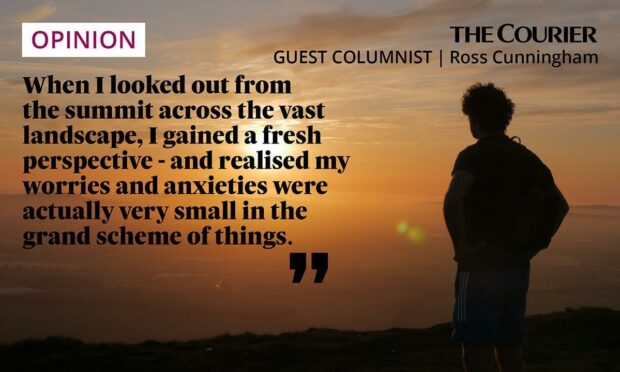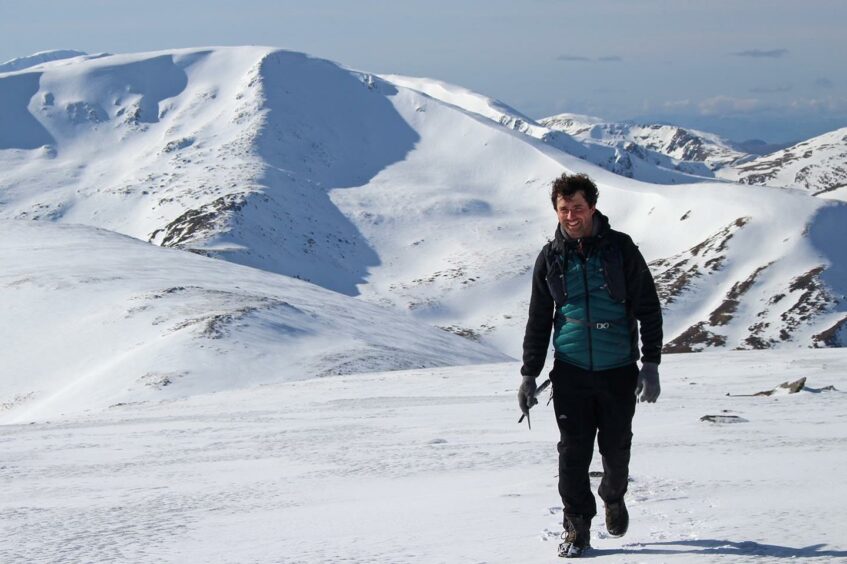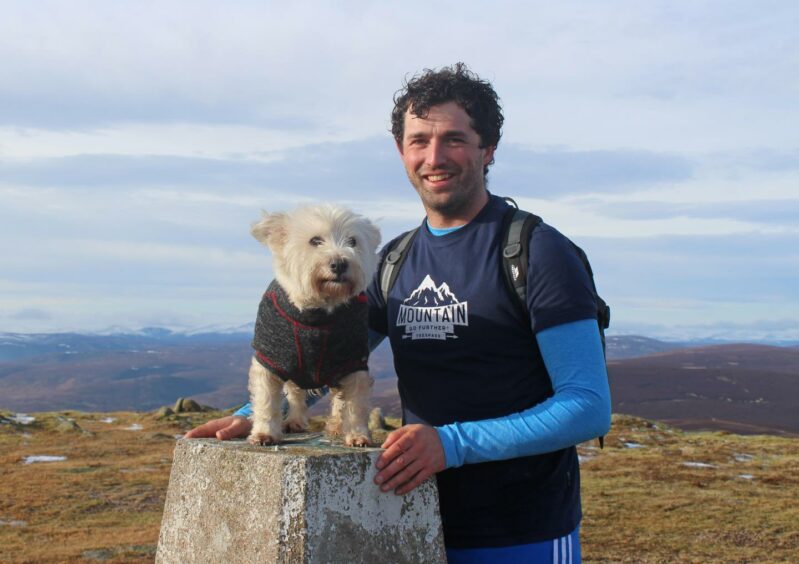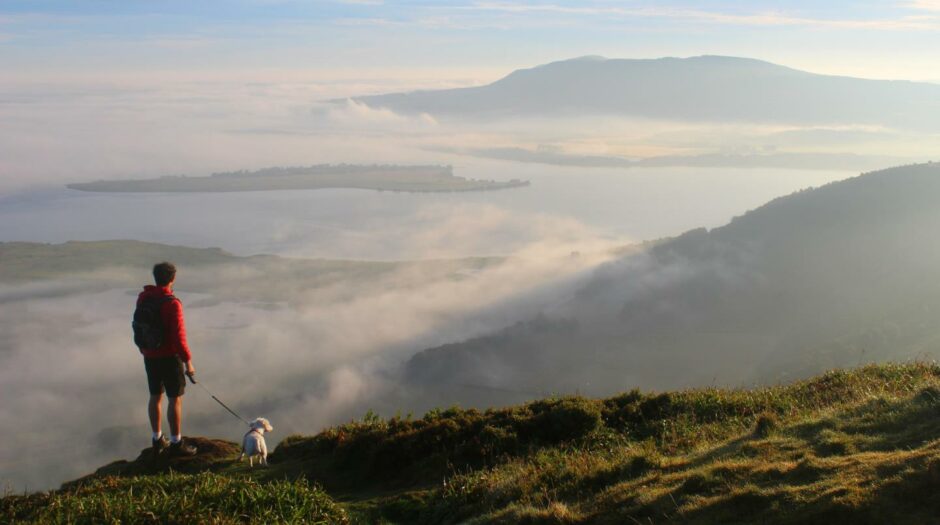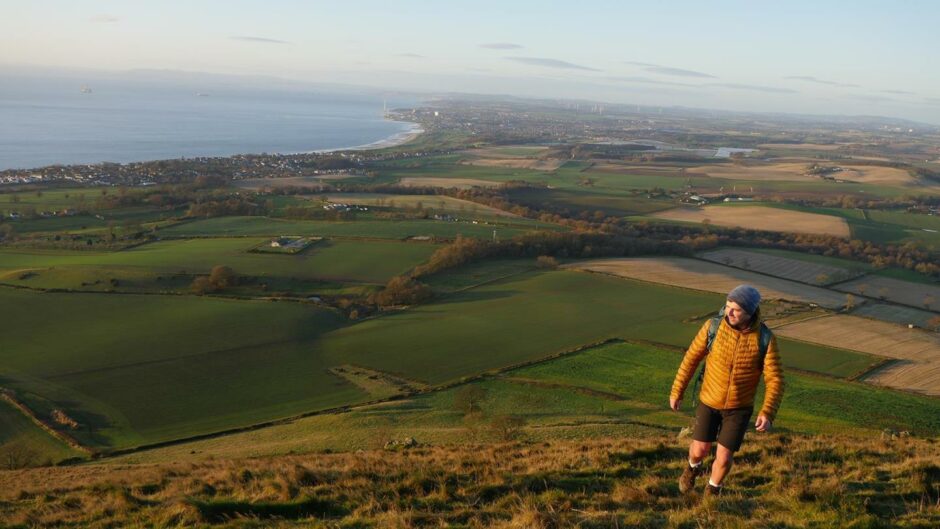A man wakes up. It’s 3am. His heart is racing, his sweat has soaked the bed sheets, and he is struggling to calm his breathing.
Anxiety is coursing through his body and he can’t get back to sleep. He goes to work exhausted and doesn’t eat all day.
At lunchtime he drives to a secluded part of the car park, where his colleagues can’t see him, and just sits there and cries.
Then he wipes away his tears and somehow finds the strength to walk back into work. And he goes about his day pretending everything is normal, when inside he is falling apart.
That man was me four and a half years ago when I was going through a period of severe depression. And that was, I’m sad to admit, my daily routine for several weeks.
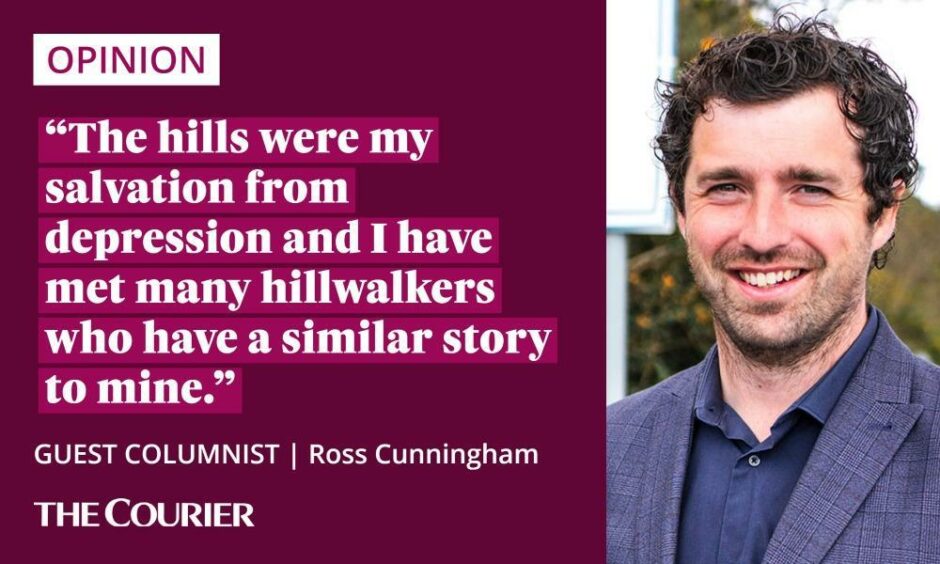
It wasn’t something I had ever experienced before and thankfully I haven’t since. But it was the lowest point of my life.
I couldn’t see a way out of it and, honestly, I didn’t want to be here anymore. I’d had enough.
But thankfully, I recovered. It didn’t happen overnight. It was a gradual process over a few weeks and months.
I spoke to my close friends and family, and eventually my GP, about how I was feeling and I learned more about depression and why I was feeling the way I was.
But one of the key reasons for my recovery was something completely unexpected: hillwalking.
Mountains mended my mind
My friend Megan, who was also my colleague at the time, somehow convinced me to go with her up a couple of Munros in Perthshire one Saturday afternoon.
I can’t say I enjoyed it. I actually don’t even remember much about it. A lot of my memories from that time are a bit of a blur.
However, in the weekends that followed that ascent up Beinn Ghlas and Ben Lawers I felt compelled to go up another hill.
It wasn’t straightforward. There was a couple of times when I’d drive for two hours to somewhere like Crianlarich, start the walk, then turn around after 15 minutes because I just wanted to go back to the safety of my bed.
But the following week I would use that as motivation to go back to the same hill and prove to myself I could do it.
‘Munro bagging’ was all I wanted to do when the weekends came, despite how low I was feeling.
I didn’t fully understand why at the time.
But the benefits of it are completely obvious to me now.
Worries look very small from the top of a hill
The endorphins that are released during walking make you feel happier and calmer.
Hillwalking is something you can do with others, where it feels a bit more natural to open up about how you’re feeling.
There’s also something special about being out in nature and connecting with it. There are plenty of studies that show how positive that can be for wellbeing.
The feeling of reaching the top also gave me a sense of achievement at being able to conquer what initially looked like an intimidating hill. It still does.
Mountains mend minds. pic.twitter.com/aUvlm2hTL8
— Ross Cunningham (@RCunningham_MMM) March 6, 2022
And when I looked out from the summit across the vast landscape, I gained a fresh perspective – and realised my worries and anxieties were actually very small in the grand scheme of things.
It’s the ideal way to press the ‘reset’ button mentally.
The hills were my salvation from depression and I have met many hillwalkers who have a similar story to mine.
Some of them are shared on my Mountains Mend Minds website.
Make mental health and walking a political priority
To me, mental health and the outdoors aren’t two separate and completely unrelated policy areas.
That’s why I launched a campaign recently, calling on all parties standing in this May’s Fife Council elections to commit to including significant actions on mental health and the outdoors in their manifestos.
Fife is home to 370,000 people.
According to the Scottish Government website “around one in three people are estimated to be affected by mental health problems in any one year”.
That’s more than 100,000 Fifers.
But the Kingdom is also home to the Fife Coastal Path, seven Marilyn hills, the Pilgrim Way, and countless parks, beaches and woodland walks.
In my opinion we already have the best region, per square mile, for walking in Scotland.
We just need to find more ways to enable and support people to responsibly access these areas, so they can reap the mental health benefits of our great outdoors.
There also needs to be a continued focus on improving paths, facilities, access and active/public transport links to help people make the most of our beauty spots and outdoor spaces.
Walking can be part of our mental health solution
I believe we have the potential to use walking in the countryside as way to help people.
Not just those struggling with depression and other mental health issues. As a way to reduce anxiety and stress and improve physical health for everyone.
Getting out walking might not help everyone with their mental health.
And for those it does help it, will likely just be a part of the solution.
But the more people we can get to lace up their walking boots and head up the Lomond Hills or along the Coastal Path, the better our mental health will be.
I cried every day when I was going through depression but you’ll never find me greetin’ when I’m walking up a hill.
Ross Cunningham is a mental health and outdoors advocate and campaigner and a very proud Fifer.
